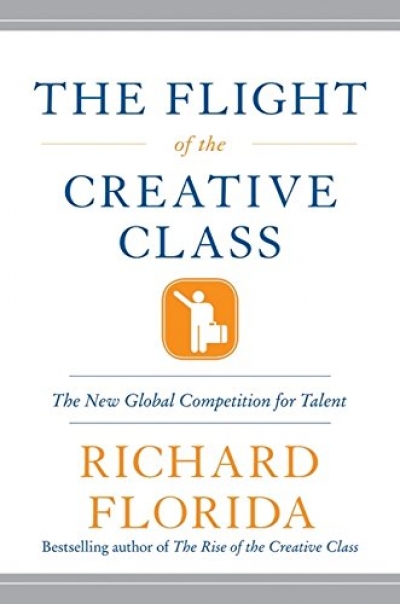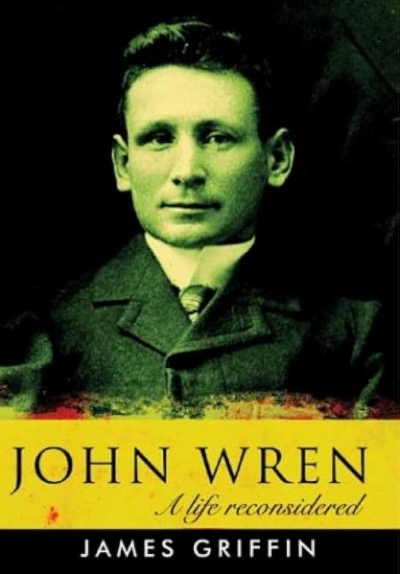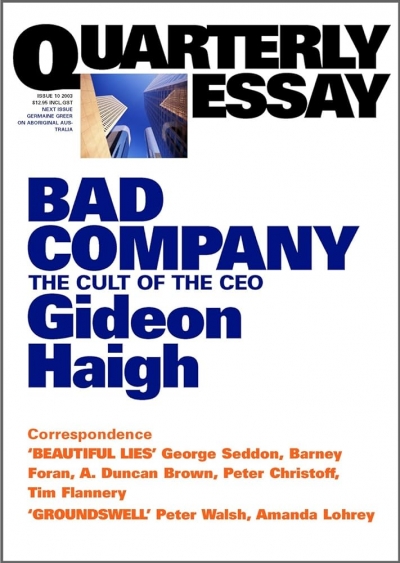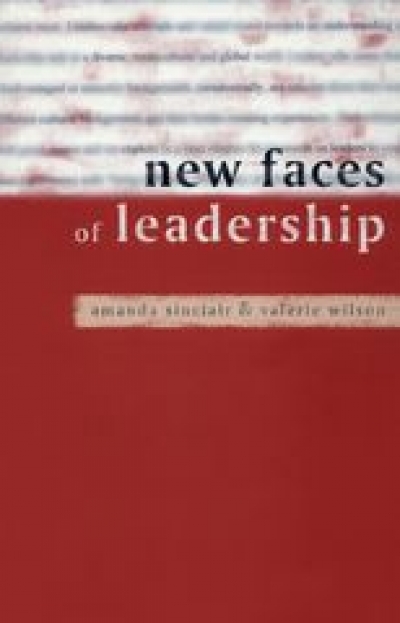There is something uncommonly beguiling about a business writer who can insouciantly intersperse his argument with references to Eugene O’Neill and T.S. Eliot. Gideon Haigh is such a man, and the tale he has to tell is wonderfully seasoned by his intelligence and literacy. But that does not make its logic compelling.
Bad Company displays an almost tabloid preoccupation with the excesses of certain charismatic CEOs: particularly, in the local context, Ray Williams of HIH and the Wizards of One. Tel. But to suggest that these fallen idols are typical Australian CEOs is like describing Helen Darville as one of our typical novelists, or Ern Malley as a typical poet.
...
(read more)




